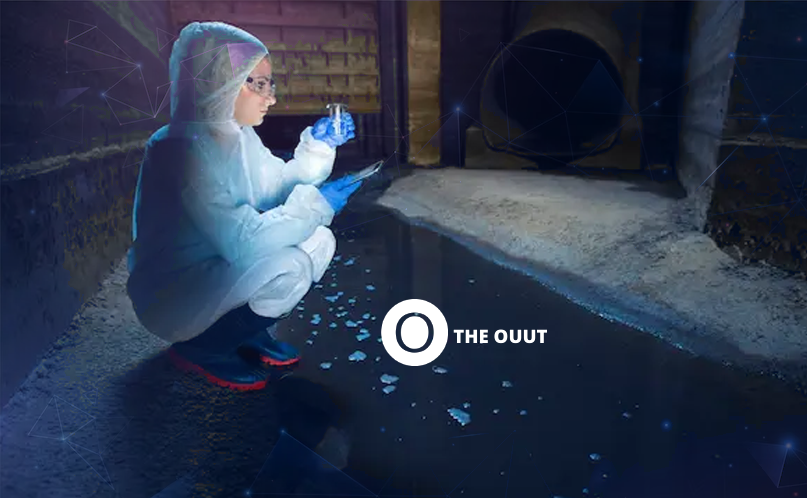How Yemen Can Leverage Technology To Overcome Water Crisis

Yemen, like many other countries, has been facing a severe water crisis for many years, with limited access to clean water and issues of water scarcity. The Yemeni water crisis is a complex and multifaceted issue that requires sustained efforts from both national and international stakeholders. The country is disadvantaged because of its semi-arid landscape. Unlike other countries in the region, Yemen has no permanent rivers. Thus, the country extensively relies on groundwater and aquifers for its agricultural irrigation and water consumption. Fortunately, there have been several initiatives and interventions by the government to address the issue.
Coordination of measures to address Yemen’s water problem has been aggressively undertaken by international organizations like the United Nations and its agencies. They collaborate with governments, NGOs, and other parties to offer technical know-how, financial support, and coordination assistance. International Development Association, Yemen Emergency Crisis Response Project (YECRP), carried out in collaboration with the Social Fund for Development and the Public Works Project in Yemen by the United Nations Development Programme (UNDP). The project’s goal was to make vulnerable communities more climatically resilient. In total, Yemen’s YECRP has helped build over 900,000 cubic meters of clean water, including 1,279 public and 30,686 household rainwater harvesting reservoirs and cisterns.
Despite the aforementioned initiatives, the implementation of technological solutions can help address these challenges and improve agricultural productivity. Here are ways in which Yemen can utilize technology to overcome its aqua challenge.
Water Purification and Desalination
Implementing advanced water purification technologies and desalination plants can help convert saline or contaminated water into potable water. Reverse osmosis, nanofiltration, and solar desalination are effective methods that can be explored. A perfect example startup is Aqua Solar Aria, which produces both electricity and clean water. It utilizes reverse osmosis (RO) technology to transform salty water from the seas into drinkable water. Founded in 2019, Manhat is a deep technology startup in the United Arab Emirates (UAE) which harvests fresh water from lost evaporated water to irrigate farms.
Water Management and Conservation
Technology can aid in collecting and storing rainwater efficiently. Yemen can implement rainwater harvesting systems on a large scale, including rooftop collection systems, rain gardens, and underground storage tanks. IoT-based sensors can monitor rainfall patterns and optimize the collection process. Smart water management systems can help monitor and conserve water resources effectively. Installing smart meters and sensors in homes, businesses, and agriculture can track water usage, detect leaks, and provide real-time data for efficient management. UAE-based startup Reddle is an AI-driven deep-tech energy, water and waste startup that is creating a sustainable environment. Again Metito has partnered with countries such as Saudi Arabia, UAE, Egypt, and Qatar just to mention a few to deliver clean water and wastewater solutions for the people.
Drip Irrigation and Precision Agriculture
Yemen’s agriculture sector consumes a significant amount of water. By adopting precision agriculture techniques such as drip irrigation, soil moisture sensors, and remote monitoring, farmers can optimize water usage, reduce wastage, and increase crop yield. In 2020, the US company Responsive Drip Irrigation (RDI) launched a new hub in UAE. Its plant-responsive system reduces water consumption and increases food production in these hyper-arid climates.
Water Recycling and Reuse
Implementing advanced water recycling systems can also help treat and reuse wastewater for non-potable purposes such as agriculture, industrial processes, and sanitation. Technologies like membrane bioreactors and advanced oxidation can ensure proper treatment. Hitachi Plant Technologies, Ltd for instance provides Dubai with water treatment systems based on membrane separation technology, built around a newly developed MBR system. Xylem, which has a presence in the UAE and Lebanon, also develops solutions to help solve the world’s toughest water challenges.
Practical Solutions
Developing mobile applications and information systems can help raise awareness about water conservation practices and provide access to information on water sources, quality, and availability. These platforms can also enable reporting of water-related issues to the authorities.
Deploying remote sensing technologies, satellite imagery, and data analytics can aid in monitoring water sources, detecting changes in water levels, and predicting potential water-related disasters like droughts or floods. Early warning systems can help authorities take timely action.
Yemen must continue to collaborate with international organizations, NGOs, and technological innovators to leverage their expertise and access resources. Partnerships can help bring in funding, knowledge transfer, and support in implementing technology-driven solutions. Utilizing technology to educate and engage communities in water conservation practices. Social media campaigns, interactive websites, and online forums can be employed to raise awareness, share knowledge, and encourage sustainable water usage.
The nation can emulate these measures to solve its water crisis problem. However, it is crucial to note that while technology can offer viable solutions, it should be implemented alongside comprehensive policies, infrastructure development, and community engagement to ensure sustainability and equitable access to water resources.
